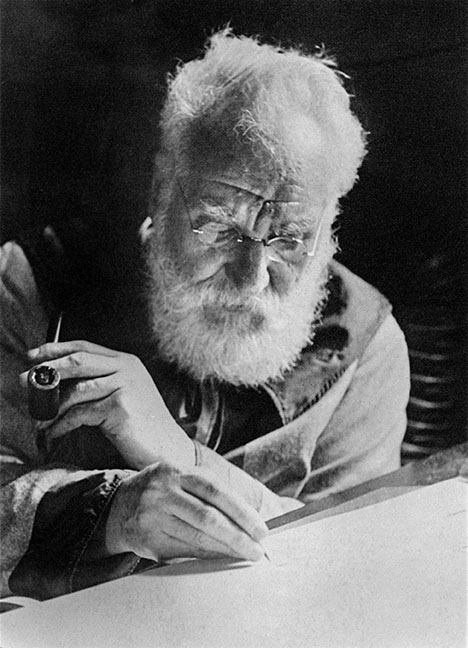

Alexander Graham Bell was a Scottish-born scientist, inventor, and engineer who is credited with inventing the telephone. He was also a pioneer in the field of aviation, and he developed the first practical helicopter.
Bell was born in Edinburgh, Scotland, in 1847. He was the son of a speech therapist, and he was interested in sound and hearing from a young age. He studied at the University of Edinburgh and the University of London, and he received his doctorate in 1876.
In 1876, Bell patented the telephone, a device that allowed people to communicate over long distances by transmitting sound through wires. The telephone was a major breakthrough in the field of communication, and it revolutionised the way people communicated with each other.
Bell continued to work on the telephone, and he developed a number of improvements to the device. He also worked on other inventions, including the phonograph, a device that could record and playback sound.
Bell was a brilliant scientist and inventor, and his work has had a profound impact on the world. He was awarded the 1880 Volta Prize for his work on the telephone, and he was knighted by Queen Victoria in 1902. He died in Nova Scotia, Canada, in 1922.
Here are some of the key things to know about Alexander Graham Bell:
Alexander Graham Bell's legacy continues to inspire inventors and entrepreneurs around the world.

Alexander Graham Bell us a proper noun.
The name "Alexander Graham Bell" is of Scottish origin. The surname "Bell" is thought to come from the Old English word "beal", which means "beautiful". The given name "Alexander" is thought to come from the Greek word "Alexandros", which means "defender of men".
The name "Alexander Graham Bell" is therefore a combination of two words that both have positive connotations. This is perhaps a fitting name for someone who was such a brilliant and influential inventor.
What is Alexander Graham Bell famous for?
Question: How did Alexander Graham Bell's invention of the telephone contribute to the development of modern communication?
This question would test your understanding of the telephone and its impact on the development of modern communication. You would need to be able to explain that the telephone made it possible for people to communicate over long distances in real time. This had a major impact on the way people lived and worked.
Here is a possible answer to the question:
Address
Developing Experts Limited
Exchange Street Buildings
35-37 Exchange Street
Norwich
NR2 1DP
UK
Phone
01603 273515
Email
hello@developingexperts.com
Copyright 2025 Developing Experts, All rights reserved.